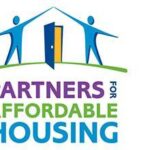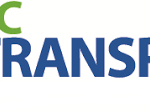Short-term rental registry will deliver more homes, ensure hosts follow rules
To help more families find a place to live in B.C. and build on actions underway, the Province is launching a new short-term rental (STR) registry.
“We are taking action to help more people find a home in the communities they love by reining in speculators who are operating illegally,” said Ravi Kahlon, Minister of Housing and Municipal Affairs. “The launch of the registry is the next step to provide more long-term homes for people, giving hosts who are playing by the rules the ability to continue to legally operate and welcome guests while further cracking down on speculators who are breaking the rules.”
Anyone operating a short-term rental in B.C. and listing on platforms, such as Airbnb, Vrbo and others, will be required to register with the Province, including hosts operating outside areas with the principal-residence requirement.
To register, hosts need to complete an online application available here: https://gov.bc.ca/strregistry
Hosts will receive a provincial registration number that must be displayed on all online listings in B.C., effective May 1, 2025. Hosts who do not comply and who do not have a provincial registration number will have their listings taken down as of June 1, 2025.
Registration fees are:
- $100 per year for an STR in which the host lives, such as a whole home the host rents out while away or a bedroom within it;
- $450 per year if the host does not live in the STR, such as a secondary suite, cottage or laneway home; and
- $600 per year for an entire strata hotel.
Hosts will receive a 50% discount on fees if they register by Feb. 28, 2025, or a 25% discount if they register by March 31, 2025. Revenue from the program will support STR enforcement and compliance in communities throughout B.C.
The provincial registry requirement is in addition to any requirements and rules set out by local municipalities and governments, including any business licence requirements.
Reining in the number of illegal short-term rentals in B.C. is one of the steps the Province is taking to create more homes for people faster.
Preliminary ministry data shows a 10% decline in the number of entire homes being listed on short-term rental platforms in areas with a principal-residence requirement since March 2024, opening up additional housing options for people in the province.
Launching the provincial registry is a step that gives the Province another tool to help enforce rules and to ensure mini-hotel operators and people with multiple, illegal listings are no longer allowed to operate.
Action on short-term rentals is part of the provincial government’s $19-billion investment through the Homes for People Plan. Since 2017, the Province has more than 90,000 homes delivered or underway, with actions underway to help deliver thousands more over the next 10 years.
Quick Facts:
- A researcher at McGill University found that B.C.’s efforts to date to rein in STRs reduced rents by 5.7% and saved people in British Columbia more than $600 million on their rents in 2023.
- As of June 2024, multinational short-term rental platforms were required to report data to the Province monthly on all short-term rentals operating in B.C.
- This information has been shared with more than 50 local governments to support bylaw enforcement.
Learn More:
To register an STR, visit: https://gov.bc.ca/strregistry
To find out more about the registry, visit: https://www2.gov.bc.ca/gov/content/housing-tenancy/short-term-rentals
To learn more about the Province’s efforts to ensure homes are used for people living and working in B.C., not turning a profit, visit: https://strongerbc.gov.bc.ca/housing/
To learn more about the McGill University researcher’s report, visit: https://upgo.lab.mcgill.ca/publication/bc-str-2024/Wachsmuth_BC_STR_2024.pdf






















